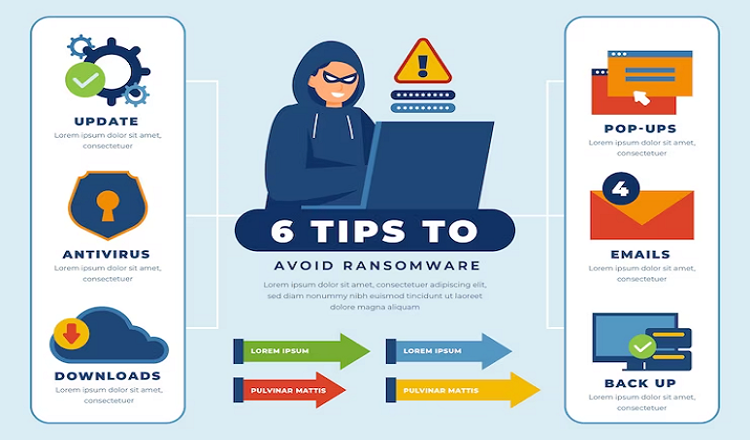The phrases “scams” and “frauds” instill fear in the minds of many people. There appears to be a new news report about a gullible victim who was taken advantage of by a cunning con artist every day. Even if it’s simple to believe that it will never happen to you, anyone can become a target. Because they are so prevalent in the United States, it is essential to be able to recognise and stay away from scams and frauds.
Let’s first clarify what we mean by frauds and scams. Scams are typically deceptive tactics used to defraud people of their money or private information. Contrarily, fraud occurs when a person purposefully advertises themselves or a good or service in order to obtain something of value. Scams and fraud can come in a variety of shapes and sizes, including phishing emails, investment schemes, and tech support scams. And regrettably, the repercussions of falling for one of these frauds may be disastrous—financially, emotionally, and even physically.
Because of this, we’ll talk about a thorough guide to spotting and avoiding typical scams and frauds in the USA in this post. We’ll go through the most typical scams and frauds, warning signs to watch out for, fraudsters’ tricks, and what to do if you’ve been duped. Additionally, we’ll offer services for victims and advice on prevention. Now that we are prepared with knowledge and a good dose of scepticism, let’s settle back, take a cup of coffee, and explore the realm of scams and fraud.
Typical fraud and scam techniques
There are several common scams and frauds that occur often in the USA. These fraudulent activities frequently use a variety of methods, including emails, phone calls, or even in-person interactions, to prey on unsuspecting victims. For instance, phishing scams frequently use a phoney email or website that has been created to look authentic in order to acquire personal information. With the promise of substantial profits, investment scams tempt victims to deposit money in a fraudulent enterprise. Tech support scams deceive victims into granting remote access to their computers so that private information can be taken.
Charity scams frequently prey on people’s good nature by claiming to be raising money for a worthwhile cause, when in fact the money goes to the con artists. When someone steals another person’s personal data, such as their social security number or credit card information, they are committing identity theft. They are doing this to make unauthorised transactions or get access to their financial accounts. In reality, there is no prize when sweepstakes and lottery frauds promise large payouts in exchange for money or personal information. The purpose of employment scams is to steal personal information or money by offering job opportunities that turn out to be fake. In order to avoid becoming a victim of these widespread frauds and scams, it’s critical to be aware of them.
How to spot fraud and swindles
It might be difficult to spot scams and frauds, but there are some universal warning signs to watch out for. For instance, unwanted phone calls or emails that seek for money or personal information are frequently signs of a scam. In order to entice victims, scammers may also employ high-pressure techniques or present offers that seem too good to be true. When dealing with any unsolicited offers, it’s crucial to exercise caution and scepticism.
Scammers frequently utilise strategies like building phoney websites or social media accounts to appear official, or posing as a reputable firm or government body. Before sending money or disclosing any personal information, it’s crucial to confirm the legitimacy of the recipient.
In order to spot similar strategies in the future, it can be beneficial to get familiar with examples of real scams and frauds, such as the IRS phone scam or the email scam involving the Nigerian prince. You may prevent becoming a victim of scams and fraud in the USA by being aware and on guard.
How to respond if you’ve been conned
It’s critical to act quickly to limit harm if you’ve been defrauded in the USA. This includes contacting your bank or credit card company to report any illegal charges and resetting passwords for online accounts. It’s also crucial to report the scam to the authorities, such as the Federal Trade Commission or local law enforcement organisations, as this can assist prevent the scammer from victimizing others.
In addition to following these precautions, it’s crucial to protect yourself from future scams and frauds. This can include being cautious when providing personal information or sending money, checking the authenticity of the person or organization before taking any action, and remaining aware about typical scams and frauds. By remaining watchful and adopting proactive actions, it’s possible to prevent falling victim to scams and frauds in the future.
preventive advice
It’s important to take proactive steps to safeguard your personal information both online and offline if you want to avoid scams and fraud in the USA. This includes using safe passwords for online accounts and exercising caution when disclosing private information, such as your social security number or credit card information. Additionally, it’s critical to recognise questionable emails, phone calls, and texts, such as those that demand money or personal information.
Doing your homework on a firm before doing business with them is a crucial preventative measure. This can involve confirming their contact details and business practises, as well as looking up their ratings and reviews on websites like Yelp and the Better Business Bureau. By following these instructions, you can guard your personal and financial information from fraud and scams.
Resources for scam/fraud victims
There are services available to assist you if you’ve fallen victim to fraud or a scam in the USA. Government organisations like the Consumer Financial Protection Bureau and the Federal Trade Commission can offer assistance and direction on how to report the fraud and safeguard your identity. Furthermore, non-profit groups like the National Consumer Law Centre and the National Association of Consumer Advocates can support victims by advocating for them in court.
For reporting and combating scams and fraud, there are also a tonne of internet services accessible, like the BBB’s Scam Tracker and the Internet Crime Complaint Centre. These resources can offer guidance on how to report fraud, how to safeguard oneself from fraud in the future, and how to keep abreast of frequent frauds and scams. Utilising these tools can enable victims to protect themselves and avoid becoming victims again.
Conclusion
In conclusion, it is critical to understand how to spot scams and frauds in order to protect oneself and their finances in the USA. It’s critical to remain aware and watchful since scammers and fraudsters are always changing their strategies and preying on the weak. People can better guard themselves against being victims of scams by being aware of the typical warning signs, tricks, and sorts of scams.
Furthermore, avoiding future victimisation can be achieved by taking proactive measures including safeguarding personal information, investigating businesses, and reporting scams. There are services for support and direction if one does become a victim of fraud or a scam.
All things considered, it’s critical for people to put their personal security first and take the necessary precautions to prevent becoming a victim. People can confidently navigate the terrain of scams and frauds in the USA and safeguard themselves from financial harm by remaining knowledgeable and prudent.











